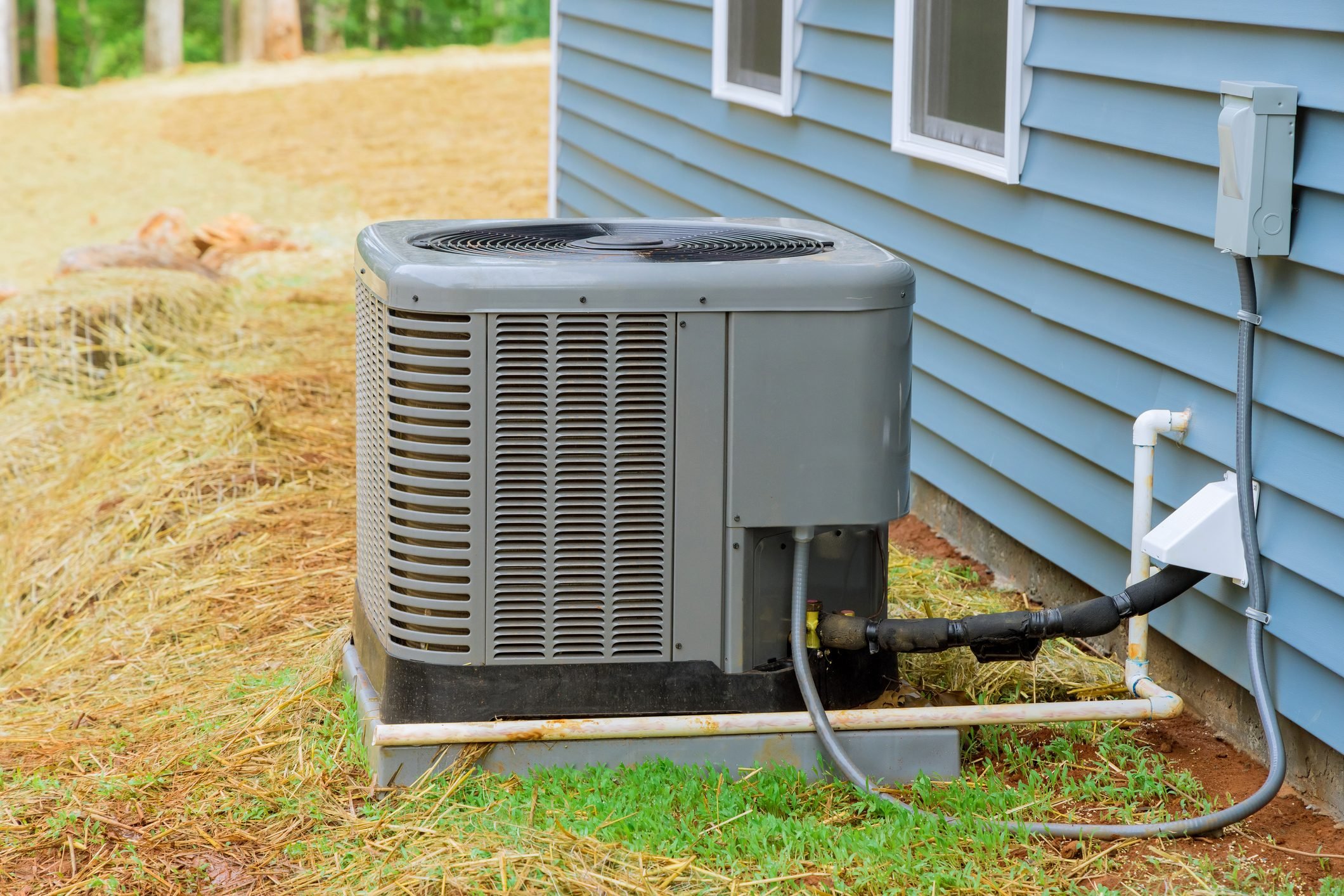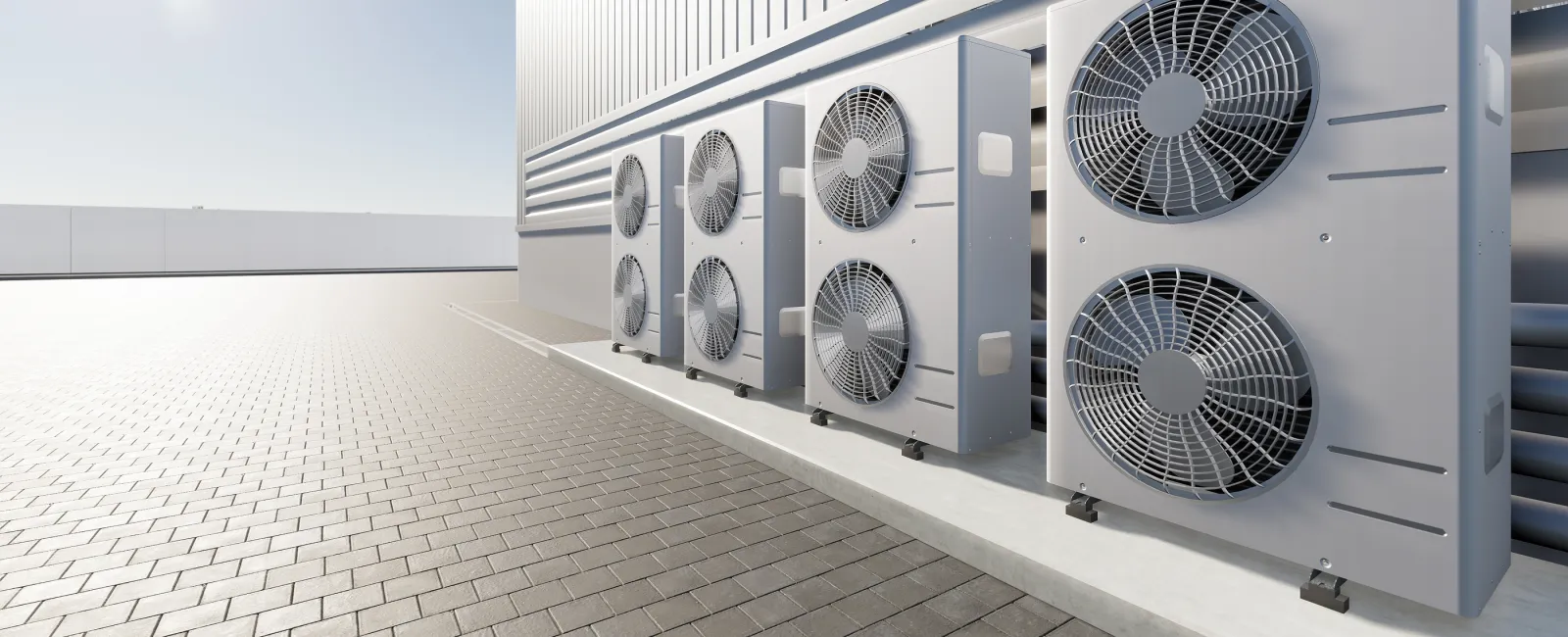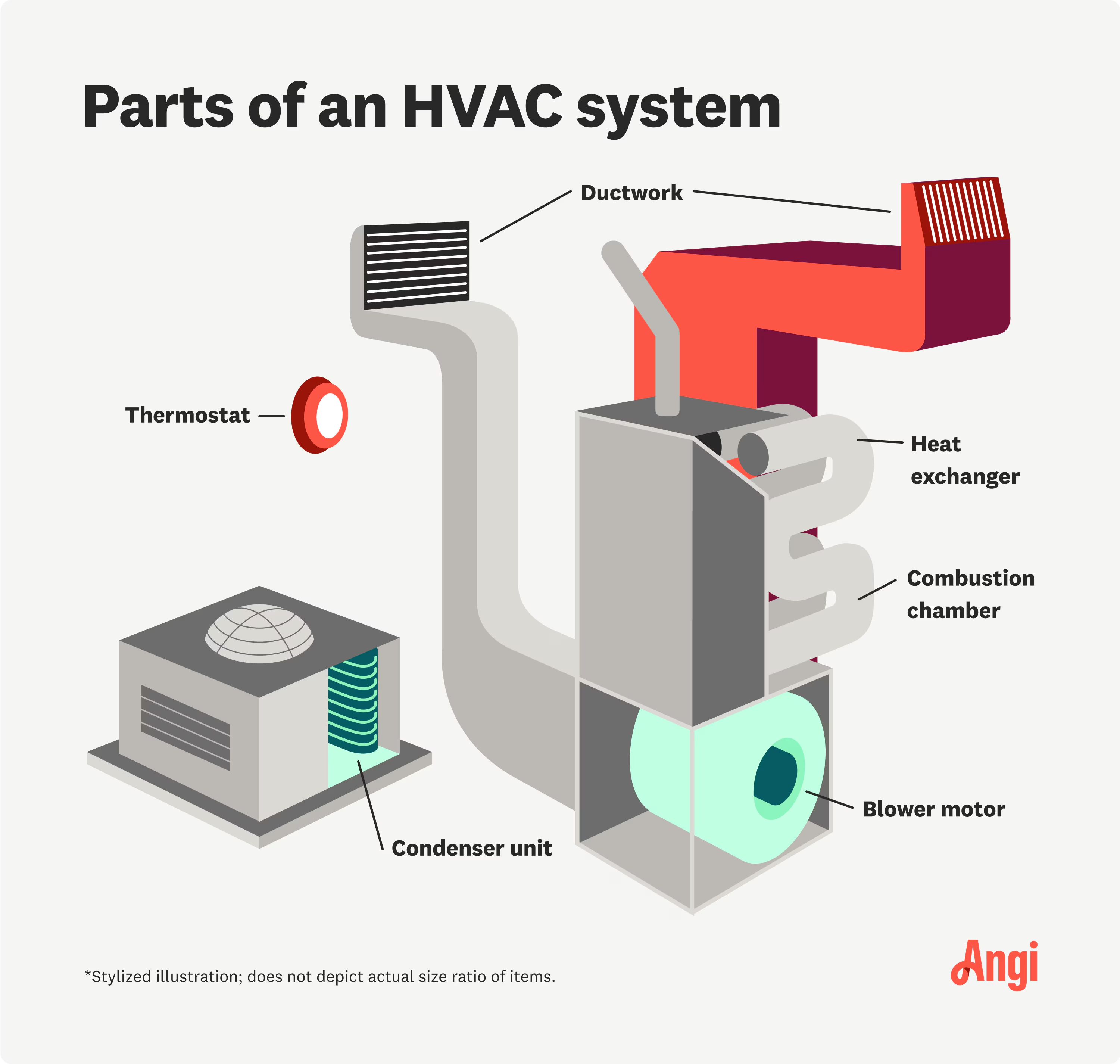Explore why HVAC experts are trusted by homeowners in your area
Wiki Article
Discovering the Essential Elements of an Efficient Heating And Cooling System
An effective heating and cooling system is improved several important elements that operate in harmony. Each part, from the thermostat to the ductwork, plays a crucial function in keeping comfort and energy effectiveness. Recognizing these aspects is critical for optimizing efficiency and boosting indoor air top quality. As one analyzes these elements, the detailed relationships between them disclose understandings into boosting general system efficiency. What certain aspects contribute most to this effectiveness?The Role of the Thermostat in Heating And Cooling Effectiveness

Often neglected, the thermostat plays a vital function in the effectiveness of A/c systems. This little gadget functions as the key control center, regulating temperature setups and making sure perfect convenience within an area. By properly picking up the ambient temperature, the thermostat interacts with the ventilation, air, and heating conditioning systems to keep the desired environment
An effective thermostat reduces energy usage by turning on the cooling and heating system only when required, thereby protecting against excessive home heating or air conditioning. Modern programmable and smart thermostats boost this effectiveness better by allowing users to set timetables and remotely adjust settings, adjusting to daily regimens.
In addition, the placement of the thermostat is essential; incorrect place can result in unreliable temperature analyses, causing ineffective operation. Generally, a well-functioning thermostat not only boosts comfort yet likewise adds considerably to energy savings and the durability of the heating and cooling system.
Understanding the Importance of Air Filters
Air filters serve a necessary feature in a/c systems by assuring that the air distributing within an area continues to be healthy and clean. These filters catch dirt, irritants, and various other pollutants, stopping them from being recirculated throughout the setting. By recording these bits, air filters add to enhanced indoor air high quality, which can significantly benefit occupants' wellness, particularly those with allergic reactions or breathing conditions.Additionally, keeping clean air filters boosts the efficiency of heating and cooling systems. Blocked filters can restrict air movement, causing the system to function more challenging to preserve desired temperatures, causing increased power consumption and greater utility expenses. Frequently replacing or cleansing filters is a vital upkeep action that can extend the life-span of HVAC equipment. Ultimately, understanding the significance of air filters allows homeowners and structure supervisors to take proactive measures to ensure a well-functioning, effective a/c system that promotes a safe and comfy indoor environment.

The Performance of the Heating System and Heatpump
Furnaces and heatpump are important elements of cooling and heating systems, in charge of supplying warmth throughout colder months. Furnaces run by heating air via burning or electrical resistance, then dispersing it throughout the home by means of ducts. They normally use rapid home heating and can be fueled by all-natural gas, electrical energy, or oil, depending on the system kind.Conversely, heatpump move heat instead than generate it. They remove warm from the outside air or ground, also in reduced temperature levels, and move it indoors. HVAC experts. This dual capability allows heat pumps to likewise provide air conditioning in warmer months, making them versatile alternatives for year-round climate control
Both systems call for proper maintenance to guarantee effectiveness and longevity. While heating systems excel in severe cold, heatpump can be useful in modest climates. Recognizing their distinct performances help home owners in selecting the most appropriate option for their home heating requires.
Exploring the A/c Unit
The a/c device is a crucial part of HVAC systems, offered in numerous kinds to suit various requirements. Comprehending the performance ratings of these devices is vital for making notified options concerning energy consumption and expense. This section will certainly explore the varied kinds of air conditioning system and make clear just how efficiency scores influence efficiency.Kinds Of Air Conditioners
While different variables affect the selection of air conditioning systems, understanding the various types offered is crucial for property owners and structure supervisors alike. Central air conditioning conditioners are made to cool down entire homes or buildings, using a network of ducts for air flow. Window devices use an even more localized solution, suitable for small areas or single rooms. Mobile ac image source unit give adaptability, permitting individuals to move the system as needed. Ductless mini-split systems are an additional alternative, integrating the effectiveness of central systems with the convenience of zoning, as they require no ductwork. Ultimately, geothermal systems harness the planet's temperature for energy-efficient cooling. Each type comes with distinct advantages, making educated options vital for effective climate control.
Efficiency Scores Clarified
Recognizing effectiveness ratings is important for selecting the best cooling system, as these metrics offer understanding into the system's efficiency and energy intake. The most typical rating for a/c is the Seasonal Energy Efficiency Ratio (SEER), which determines the cooling result during a common cooling season divided by the total electrical power input. A higher SEER indicates better performance. Additionally, the Power Performance Proportion (EER) is utilized for gauging effectiveness under details conditions. Another crucial metric is the Energy Celebrity certification, which symbolizes that a device meets rigorous power effectiveness guidelines. By reviewing these rankings, consumers can make enlightened choices that not only optimize convenience however additionally minimize power prices and ecological influence.The Relevance of Ductwork and Air movement
Effective ductwork design and air flow monitoring play critical roles in the total performance and performance of cooling and heating systems. Proper ductwork assurances that conditioned air is dispersed evenly throughout an area, image source decreasing temperature variations and enhancing comfort. Properly designed ducts minimize resistance to air flow, minimizing the work on HVAC tools and eventually decreasing power usage.Air movement monitoring entails tactically positioning vents and signs up to boost the circulation of air. This stops usual problems such as cool or warm places, which can take place when air movement is obstructed or improperly well balanced. Furthermore, the appropriate duct materials and insulation can further improve efficiency by decreasing heat loss or gain during air transit.
A reliable ductwork system not just adds to energy cost savings but can additionally lengthen the life expectancy of HVAC tools by lowering unneeded pressure (HVAC experts). Comprehending the significance of ductwork and airflow is essential for attaining peak HVAC system efficiency.
Regular Upkeep Practices to Enhance Performance
Normal maintenance practices are necessary for making sure peak efficiency of a/c systems. These methods consist of regular assessments, cleaning, and needed repair work to maintain the system running effectively. Frequently altering air filters is essential, as stopped up filters can block airflow and lower performance. Additionally, technicians ought to check and tidy evaporator and condenser coils to stop getting too hot and power wastefulness.Annual expert assessments are also advised, as qualified technicians can determine potential concerns prior to they rise. Lubing relocating components lessens damage, adding to a much longer life-span for the system. Furthermore, making certain that the thermostat functions properly help in keeping excellent temperature level control.

Often Asked Questions
Just how Commonly Should I Change My Thermostat?
Thermostats ought to normally be changed every 5 to ten years, relying on usage and innovation advancements. Regular checks are a good idea to assure peak performance, especially if experiencing inconsistent temperature level control or increased power costs.What Size Air Filter Is Best for My HVAC System?
The very best size air filter for a cooling and heating system differs by device layout. Generally, it's crucial to seek advice from the proprietor's handbook or examine the existing filter dimensions to ensure peak efficiency and air high quality.Can I Set Up a Heatpump Myself?
Installing a image source warmth pump independently is feasible for competent individuals, yet it calls for expertise of electric systems and local codes. Working with an expert is suggested to assure correct installation and optimal system performance.Exactly how Do I Know if My Ductwork Is Efficient?
To establish ductwork efficiency, one should check for leaks, action airflow at vents, examine insulation quality, and evaluate temperature level distinctions in between supply and return air ducts. Expert assessments can provide extensive understandings right into general performance.What Are Indicators My HVAC Needs Immediate Maintenance?
Indications that a HVAC system needs immediate upkeep include uncommon sounds, inconsistent temperatures, raised power costs, undesirable odors, and constant cycling. Attending to these concerns without delay can stop further damages and guarantee optimal system efficiency.Air filters offer an essential feature in HVAC systems by assuring that the air circulating within an area stays clean and healthy. Furthermore, maintaining clean air filters boosts the effectiveness of Heating and cooling systems. Ductless mini-split systems are one more option, integrating the performance of main systems with the benefit of zoning, as they need no ductwork. Recognizing efficiency ratings is essential for choosing the right air conditioning system, as these metrics supply understanding into the system's efficiency and power consumption. The ideal dimension air filter for a HVAC system varies by unit layout.
Report this wiki page